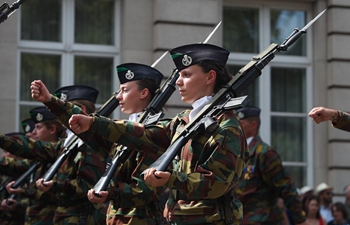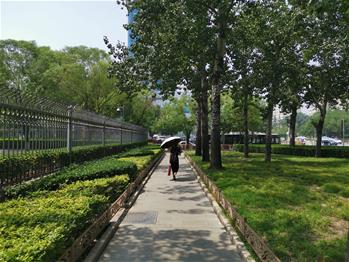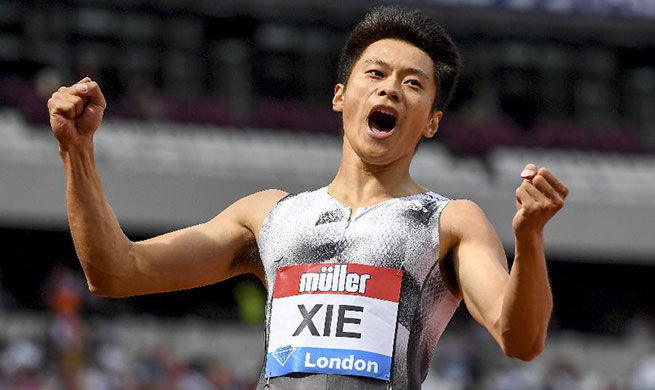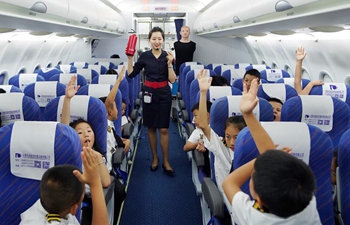by Li Baodong
OTTAWA, July 21 (Xinhua) -- "It's like you're putting your hands into the gloves of the expert. Receiving movement information from an experienced surgeon can help learners gain the skills more quickly," said Bin Zheng, head of a surgical lab at the University of Alberta.
"Our goal is to create a simulation system for young physicians and surgeons to practice surgical skills without harming the patient, without harming animals," said Zheng, an associate professor and the director of the Surgical Simulation Research Lab (SSRL) at the Canadian university.
Comparing with most other medical labs in the university studying diseases and patients, scientists in the SSRL focus on healthcare providers; specifically, they aim to know capacities and limitations of physicians and surgeons, and design a system to support them.
"This includes a better simulation program for their skills training. We do everything to create a simulation model to replace patients being used as a training model," he said.
Zheng received his Ph.D. in the Simon Fraser University of Canada in 2005; then he moved to the United States and worked as an education coordinator for years there before coming back to Canada. Zheng was trained and practiced as a surgeon for eight years in China before his career in Canada and the United States.
Backing to the University of Alberta, Zheng set up the SSRL at the Faculty of Medicine and Dentistry, where physicians, surgeons, educators, computer scientists and engineers from several countries, including Canada, China, Colombia, Iran, and Uzbekistan, work together.
The lab has developed a cutting-edge technology, called "Digital OR Black Box", to track the eye and hand movements of expert surgeons in the operating room, which provides digital data that can monitor movements of surgical tools and surgeon's vision, and can be analyzed by a computer constantly.
"We have concrete data to describe eye-hand coordination pattern of surgeons in a very precise way," said Zheng, "we hope to use these data to enhance patient safety in future operating room."
The hand-eye-coordination data recorded from expert surgeons could also pass onto young surgeons for them to learn how to perform complex surgical operations.
For example, digital data recorded from expert's hands can be transferred to a second training station where a novice surgeon could feel what the experienced surgeon did.
The Royal College of Physicians and Surgeons of Canada (RCPSC) provided a fund to Zheng to test the benefit of training the muscle memory of surgeon in learning new surgical skills.
Zheng told Xinhua that another technology developed in the SSRL allowed scientists to track eye movements from multiple surgeons. By analyzing shared gaze points from these surgeons, Zheng's team found a new way to measure synchronization among surgeons, which built the foundation for measuring team collaboration.
Zheng has been working with international researchers over the past seven years to create virtual training environment for training surgical residents.
"We develop patient-specific 3D models, and then display these models to the residents via the virtual and augmented reality platforms to help with their surgical performance," he said.
Now, the digital image-guided technology is mainly used on the head and oral surgeries, but Zheng hopes the technology will be able to be applied to other areas as well.
"I hope to enhance our computer algorithms in the near future so that we are able to create reliable digital models of the internal organs. After that, we will be able to use digital virtual model for guiding surgeries performed on the chest and the abdominal cavities," said Zheng.
Other research under way in the SSRL includes a study of monitoring the brainwaves of surgeons during the operation. "We aim to detect the moment when a surgeon becomes fatigued during a procedure, so we can suggest the surgeon to take a break or other measures before it is too late," Zheng said.
"We are here to support physicians and surgeons based on what they need," he added.













